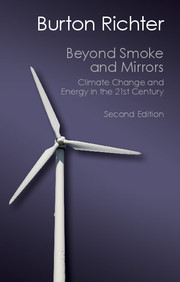17 - World Policy Actions
Published online by Cambridge University Press: 05 November 2014
Summary
Introduction
All the nations of the world share one atmosphere. What goes into it affects all, and the consequences of climate change will fall on all. Depending on your perspective and your experience with international agreements, you can be either impressed or disillusioned about the international response to the need to mitigate global warming. It was only in 1992 at the Rio Earth Summit that the nations of the world agreed there was a problem. After that, with remarkable speed, the Kyoto Protocol was produced in 1997, and entered into force in 2005 when industrialized nations accounting for at least 55% of 1990 emission signed on.
A mere 13 years from recognition to action is regarded as fast by those with experience with the UN organization, or slow by those focused on the urgency of the problem. However you regard it, Kyoto is the basis for action now, but it expires in 2015 and has to be replaced with a new and necessarily better Protocol that brings in all the nations that were left out of the action agenda last time.
The United States played an important role in designing the Kyoto Protocol, but never ratified it. Cap and Trade is an example of a US proposal that was viewed with suspicion at the beginning of negotiations, but became the mechanism favored by most for reducing emissions. There are other US inventions as well. However, the issue at home in the United States before, during, and after the Kyoto meeting was the role of the large developing countries. The US Senate in a resolution in early 1997 stated clearly that they would not ratify any treaty that did not include some binding commitments on the part of the developing countries. There were none included, and President Clinton did not send the Protocol to the Senate for ratification since he knew that it would lose. On taking office President G. W. Bush said he would not send it on since it would not work if the developing counties made no commitments of their own.
Information
- Type
- Chapter
- Information
- Beyond Smoke and MirrorsClimate Change and Energy in the 21st Century, pp. 333 - 347Publisher: Cambridge University PressPrint publication year: 2014
